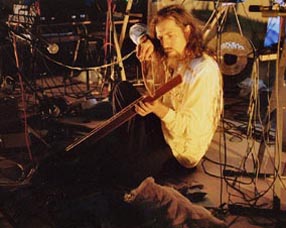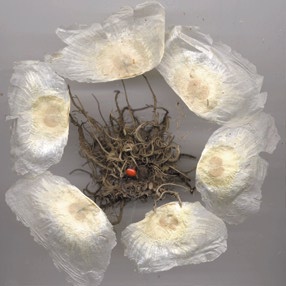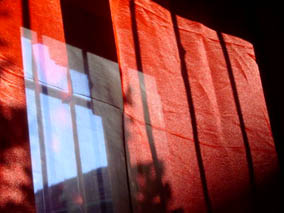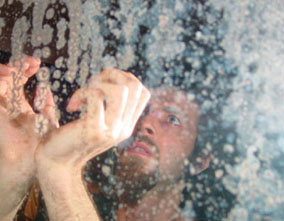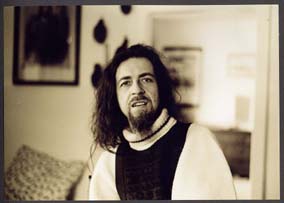|
|
Alio DieStefano
Musso studied art and electronics in his home town of Milan, Italy, and began performing ambient,
electro-acoustic music under the name Alio Die in 1989. "Natural and acoustic sounds and
selected noises, electronically treated and reworked, are integrated in a
meditative and spiritual context that often, in the feeling, becomes close
to a prayer. Visible static, this music is rich of hidden sounds, layers
of elements to discover at each listening. Alio Die's music, in the
consciousness space that creates, it's a melting of technology and
mysticism, like a new ritual with echoes of a medioeval time, deep and
grounded in introspection." Since
the late
Sean
Cooper, All-Music Guide For
almost two decades, Stefano Musso of Alio Die has gently pushed the
Drone genre forward. In a still mysterious confluence of occurances,
an entire generation of fresh artists set out redefining the
Ambient concept in the early 1990s and Musso was one of them. "Passion,
nature and awakening" are at the heart of his script, which is,
however, free of any New Age connotations. Rather, the Alio Die aesthetics
have a lot in common with traditional Indian music and its ability
of building an entire world from a simple, continous root tone and of
completely side-stepping time's regular borders. Most of all, however, his
oeuvre is simultaneously marked by a wondrous absence and pervasive, yet
hidden presence of popular music's main ingredients: Melody, harmonic
development and rhythm. There is always a pulse running through Musso's
stretched-out sound worlds, which never fail to speak directly to the
heart and the regular inclusion of acoustic instruments
and even vocals lends subtle motivic tension to the otherwhise freely
floating pieces. His both recognisable and discreetly subcutaneously
tingling style was quickly picked up by Projekt
records, which in turn associated him with the American scene and artists
like Steve Roach and personal favourite Robert Rich - resulting
in a string of inspired and inspiring collaborations. At the moment,
however, Musso is focussing on his solo work and on his small, but highly
respected Hic Sunt Leones outfit specialised in releasing limited
Digipacks of his own work and the music of befriended artists. As the
spiritual father of this select community, Musso is thereby not only
pushing the Drone genre to new horizons, but establishing links with
completely different scenes as he approaches the beginning of a third
decade of musical activity. Tobias
Fischer / Tokafi.com - published 2008-11-24
|
